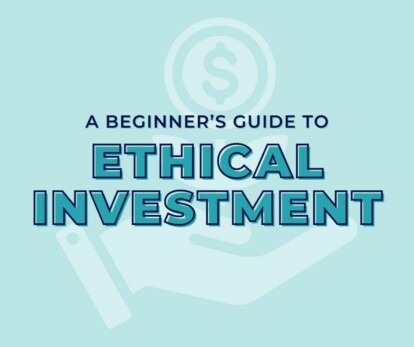Far from fair game: Why hunting must end


They say that money makes the world go round. How it’s spent and where it’s saved or invested certainly shapes the world and the lives of the beings within it. Sometimes, money is used for good but, often, for far less than good.
This poses a problem for anyone who runs a vegan or sustainable enterprise.
Where should you invest your money so that it supports your ethical values? How can you avoid doing harm to other animals through your financial decisions?
Where should you look for funding for your enterprise when it’s crucial that the money comes from an ethical source rather than from harmful industries or practices?
Let’s look at some ethical investment avenues you may want to explore.
Ethical investment, often referred to as green investing, socially responsible investing (SRI) or sustainable investing, involves selecting investments based on both financial return potential and their positive impact on society and the environment.
This approach goes beyond simply maximising profits; it seeks to generate positive social or environmental outcomes while delivering competitive financial returns.
There are two ways in which ethical investments may be of interest to you as a vegan and sustainable enterprise.
The first is that you can receive funding from investors who are passionate about veganism and sustainability and who want to channel their money into companies that prioritise animal welfare, environmental sustainability, and social responsibility.
By supporting enterprises like yours, investors not only contribute to causes they believe in but also help drive positive change in industries that often face scrutiny for their environmental and ethical practices (for example, the food and fashion industries).
The second is that you can invest your own funds and profits from your business into ethical banks, investment funds, stocks and shares, or savings accounts, for example, to ensure that the money made by your organisation continues to make a positive impact on the planet.
As well as potentially helping you to create more money that you can invest in your commitment to veganism and sustainability, you can proactively contribute to campaigns and causes that will better life on Earth.
Whether you’re looking to invest money from your ethical enterprise in a way that supports causes you believe in or you are looking for backing from investors to grow your organisation, there are some key points to consider.
You’ll need to take the time to research and understand the companies and industries you’re considering investing in or that you’re approaching for funding. Look beyond surface-level claims and assess their commitment to ethical practices and sustainability.
Seek out information on environmental policies, supply chain practices, and corporate governance. Transparency and accountability are crucial.
Before you seek funding or make an investment, it’s important that you understand what values you want to guide your financial decisions and what your priorities are. You should also think about the values of your customers and other stakeholders.
You will need to decide whether you want to focus on ‘negative’ or ‘positive’ ethical issues, for example.
This means, do you want to avoid companies that invest in harmful practices that impact the environment or society, such as gambling, arms production, or pornography (negative ethical issues)?
Or do you want to invest in companies that are proactive about improving society or the environment (positive ethical issues), such as donating to charity, supporting local communities or being vegan?
You will also notice that ethical investment companies often talk about different levels of responsibility or ‘light green’, ‘medium green’ or ‘dark green’ financial products that are graded according to their social and environmental value.
Are there issues on which you’re prepared to compromise? What are your non-negotiables?
As we mentioned above, it’s advisable to do as much research as possible. You may be surprised by the ethical investment choices and opportunities open to you. On the flip side, you will need to be aware of issues such as greenwashing, which can suggest financial products (among others) are more ethical than they really are.
Mindful of the adage, “Don’t put your eggs in one basket”, investment diversification means spreading your money across multiple different types of investments to ensure that you don’t lose everything if an investment drops in value.
Diversifying your investment portfolio can help mitigate risk and maximise returns. Consider spreading your investments across different asset classes, industries, and geographic regions.
While ethical considerations are important, financial performance should also be a key factor in your investment decision as you don’t want to lose the hard-earned profits from your enterprise.
It’s vital that you evaluate the financial health and growth potential of the companies you’re considering investing in.
If you look at platforms that facilitate investments in start-up businesses (including vegan businesses), you will typically see a warning saying that says “Due to the potential for losses, the Financial Conduct Authority (FCA) considers this investment to be high risk”. This is because, sadly, the majority of start-up businesses fail.
If you are passionate about investing in a vegan start-up, diversification is essential. The start-up should be one item in your investment portfolio, not the whole thing. The FCA warns that start-up investors should be prepared to lose 100% of their investment or to see a slow return on their money.
That’s not to say you should not invest in an ethical startup. It’s just essential to proceed with caution.
If you’re new to the world of ethical investments or you want to pitch for funding from an investor, then we would urge you to seek professional advice, ideally from a reputable financial advisor who specialises in sustainable and responsible investing.
Platforms have emerged to champion and facilitate ethical investment. If you’re looking for investment to grow your vegan and sustainable enterprise, then you might want to explore the platforms below:
Veg Capital focuses on supporting businesses that are developing innovative solutions to replace our fellow animals in the food chain.
Their portfolio includes companies working on plant-based and cultured ‘meat’ alternatives, sustainable packaging, and ethical food production.
As Veg Capital’s portfolio has grown substantially over the past four years, the platform says it has currently halted deploying capital, so that it can focus on growing the impact of its current investments.
It does still offer helpful advice about submitting a pitch for investment and will accept pitches to be logged on its system for when the platform is ready to start making new investments.
Vegan Food Group is dedicated to investing in and supporting plant-based food companies. They seek to accelerate the growth of veganism by backing businesses that offer delicious, nutritious, and sustainable alternatives to animal-based products.
They also aim to help consumers make informed food choices and to advocate for a more ethical and sustainable food industry.
Currently, Vegan Food Group asks that anyone who is interested in accessing support or funding from the organisation emails them at: [email protected]
Ethex says that it is “on a mission to make money do good”. Its vision is a world “where everyone can use their money to make a lasting positive impact that aligns with their values”.
The platform lists investment opportunities from pioneering grassroots community organisations as well as ethical profit-for-purpose businesses.
You can apply to raise finance for your ethical enterprise on the website or find investment opportunities for your funds.
Seedrs is a crowdsourcing equity platform that offers a range of ethical businesses in which to invest or invites you to fundraise and reach investors for your own enterprise. Although the platform isn’t exclusively vegan, it does attract many vegan members and investors.
Beyond Animal is a platform where “investors and vegan businesses meet”. You can apply via the website to be matched with motivated investors. There are also opportunities to pitch at events and be notified when an investor expresses interest in your enterprise.
You can apply for investment via the website or invest in other vegan organisations.
There are many other investment platforms like the ones listed above, although they will vary from country to country.
In addition, you may be able to secure funding from investors via:
If you have money within your organisation that you want to invest, it’s advisable to speak with a financial advisor. As with traditional investment, you have options such as bank accounts, stocks and shares, pensions, insurance policies, property, and many more.
One option is to invest in other vegan organisations to pay forward the success within your own enterprise. Again, there are many platforms that facilitate this, including:
Vegan Investing Club provides a platform for individuals to invest in companies that align with vegan values. They offer guidance and resources to help you make informed decisions about supporting ethical businesses.
Their vision is to accelerate the vegan economy through equity Crowdfunding campaigns (this is where a founder sells public shares of their company in exchange for investment). You can buy shares according to your budget, and diversity your investments by buying shares from a number of businesses.
The Vegan Investing Club says that it has entered its third phase of development, and you are invited to get in touch if you are planning on Crowdfunding your vegan organisation via a suitable portal as they may be able to suggest a funding plan.
Mindful Wealth points out that there is almost £3 trillion invested in UK pensions and that much of this money is used to fund harmful industries including fossil fuels, gambling, tobacco, and weapons.
The company aims to help you manage your finances ethically, integrating sustainability and social responsibility into investment. It is committed to ‘impact investing’ where it not only screens out negative impact companies, but also enables you to invest in companies that are making a net positive impact on the planet.
Whether you want to find an ethical pension, saving account, bonds, or even insurance, they can work with you to create a personalised investment portfolio that reflects your values and financial goals.
Ethical Capital Investment Collaborative (formerly known as Invest Vegan) is dedicated to helping people make ethical investments that align with vegan principles. They provide education and support to help you navigate the world of ethical investing.
The collaborative believes that by connecting investors with businesses that share their values, they make it easier for individuals to make a positive impact through their investment decisions.
Vegpreneur’s Investing Hub provides investment opportunities in vegan and sustainable startups, stocks, ETFs, Kickstarter projects, equity crowdfunding campaigns, and more.
We’ve barely scratched the surface of the growing arena of ethical funding and investments. If you would like to know more about acquiring funding for your business or developing an ethical investment portfolio, then you may find the following guides helpful:
Ethical investing presents a unique opportunity for you to align your financial goals with your values.
By supporting vegan and sustainable enterprises, investors can contribute to positive social and environmental change while potentially achieving competitive financial returns.
Equally, securing investment means that your enterprise will be able to multiply its positive impact and pay it forward.
With a growing number of platforms and resources available, ethical investing has never been more accessible, impactful, or important to the future of the planet and the lives of all of us who live on it.
Disclaimer:
It’s important to note that investing involves risk, and past performance is not indicative of future results. The information provided in this blog is for educational purposes only and should not be construed as financial advice. You should conduct your own research or consult with a qualified financial advisor before making investment decisions.
We are not affiliated with any of the platforms or companies featured in this article.